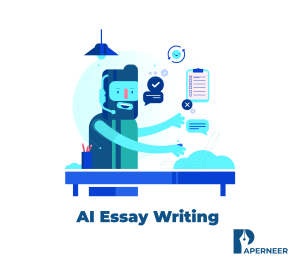Qualitative vs. Quantitative-Research Research is the cornerstone of information creation;...
Read MoreA Comprehensive Guide for Narrative Writing

Writing an essay narrating an experience in which a particular emotion is predominant might take much work. It needs the power of words. Writing about disappointment, joy, embarrassment, frustration, surprise, and all other emotions needs fascinating and attention-driving words. You might be reluctant on how to start writing your narrative essay. However, if you have us, you need not worry because we are bringing you a comprehensive guide for narrative writing with examples. This blog will provide you with comprehensive knowledge of narrative writing.
In this blog, you will find:
What is a Narrative Essay?
A narrative essay revolves around personal experiences and involves storytelling. It aims to provide readers with the nuances of an event or experience, allowing them to enter the author’s world. This type of essay involves depth of words and feelings.
A comprehensive guide for narrative writing technique helps turn a life experience into an exciting and captivating tale. For those seeking a deeper understanding, It can offer valuable insights into crafting such stories.
Narrative writing includes vivid and sensory details and is mainly written chronologically. The stories in these essays can be fictional or non-fictional. The critical elements in narrative writing are characters, a plot, a setting, a climax, and a conclusion.
Outline for Narrative Essay
The outline of narrative writing is slightly different from that of other essay writings. It typically defines its structure as follows:
Introduction:
This essay’s introduction, or the beginning, contains a hook and thesis statement, just like all other essays. However, unlike other essays, it would include a setting and characters. The setting refers to the place and time of the event or the happening, and the character relates to the person or people involved. The thesis statement includes the theme or the focused emotion of the story.
Body:
The body paragraphs of this essay include events, conflict, and development. An event refers to the sequence of happenings, which should contain a chronology. Flashbacks and non-linear storytelling could also be used. Conflict refers to the problem or issue that happened to the character. Development refers to the character’s reaction to the happening, event, or issue.
Climax:
Itrefers to the turning point or the most crucial moment of the story, where the conflict or the happening reaches its peak. It should be written to be engaging and emotional.
Conclusion:
This provides closure to the story and resolution to the conflict. It may also include the author’s final thoughts about the event.
Thesis Statement of Narrative Essay
Before writing your narrative essay, you must be sure about the emotion you want to focus on. You have to practice a ten-minute freewriting technique to jot down your feelings. Refrain from worrying about grammatical, contextual, or spelling mistakes during freewriting. Try to get as many details as possible about your experience with that emotion. This technique will help you identify whether your focused emotion is promising to write about or whether you have to opt for any other emotion.
After identifying your focused emotion, you must write a thesis statement of your essay in a single sentence, underlying the emotion you will focus on. For example, “Those days in the wilderness were the best.”
Then, consider the details and the source of tension in your story. What details can build up enough tension in the reader’s mind to hook them?
Please make a list of all the details you want to add and arrange them chronologically (from the oldest to the latest event).
After getting your details and thesis prepared, attempt for your first draft.
Make sure to consider some points in building your thesis statement:
- Have I stated the thesis of my narrative essay in the introductory paragraph?
- If not in the introductory paragraph, is the thesis clearly implied somewhere in the essay?
- Are there any portions of the essay that do not support the thesis and should, therefore, be eliminated or rewritten?
Narrative-Essay Rubric
There are some rubrics and checklists to ensure the smooth flow of narrative writing. These rubrics help in assessing the quality of the essay. Some of them are given below:
- Cohesion and Coherence: Make sure to write your essay with cohesion and coherence. Cohesion refers to the unity of structural elements like sentences, paragraphs, transitional words, etc., while coherence refers to the unity of ideas and concepts. You must ensure your ideas and sentences are correctly structured, organized, and unified.
- Support: One of the primary checklists in narrative essays is ensuring enough details and dialogues to help your writing. The vivid details provide your writing support.
- Sentence Skills: You must check whether you are consistent with your sentences and point of view throughout the essay. Check that the essay is not too wordy.
- Characterization: The characters must be well-developed and believable. The dialogue should help develop the characters and the plot of the story.
- Reflection: The essay should connect with the readers emotionally and intellectually.
Short Narrative Essay Example
Beginning
It was a beautiful, breezy night. We decided to go out for dinner. I was writing an article on my laptop while my other roommates were free when they told me they intended to have dinner outside. I just finished my article and told them to get ready. We left the apartment and realized that the weather was beautiful. We first went to some clothing outlets for window shopping, which was not just window shopping. One of our buddies wanted to buy a birthday present for her handsome hunk. We then went to a restaurant for dinner. The night seemed undoubtedly mesmerizing until we encountered a psychopath in the restaurant.
Middle
We were so busy conversing and laughing that the person at the following table started murmuring to shut up. We were shocked. One of our mates asked,” Who is he talking to?” To you idiots, he said. This remark made me so anguished that I started arguing with him. “This is a public place. Nobody can shut us up, and the ones having issues with our laughter ought to stay at their homes,” I said.
He was constantly using abusive language. It made me even more aggressive. I went to the counter to ask for the manager. I could not find the manager, so I ended up calling him at his number. We told him about the incident and threatened him to take relevant action; otherwise, we would do things on our own. He asked for an apology and assured us that he would talk to the restaurant staff and that person himself. The person was one of their repeat customers; therefore, the servers and staff took his side. The manager told us to wait in the restaurant.
Climax
Meanwhile, one of my friends called her brother who was a bureaucrat. She told him about the incident. He came to the location right at that time and the manager had also arrived. They both negotiated and decided to talk to that psychopath. They went to him and asked him to apologize.
Conclusion
He was not ready, but after some threatening words, he got ready to say sorry. He apologized and promised not to misbehave in a public place.
It was the incident when I felt empowered and courageous enough to talk for myself and other girls, and that ended with the person being apologetic to us
Narrative Essay about Overcoming a Challenge
A year-long project interrupted by an unexpected obstacle became an impossible personal challenge for me in the middle of a busy city life. In the winter of 2022, I had recently begun working as a project manager for a company.
Our goal was to introduce a cutting-edge application that would change how people manage their finances, but a series of technical issues significantly disrupted our schedule.
Determined not to give up, I surrounded myself with self-help books and podcasts and sought advice from people who had overcome adversity. The lesson I learned was simple yet profound: see challenges as opportunities for self-improvement.
Motivated by this new perspective, I energized the group by facilitating open communication and creative problem-solving.
We worked together to analyze the problem and break it down into manageable pieces. We celebrated small wins like fixing bugs, writing code, or testing prototypes. Progress was gradually taking place regularly.
In the spring, the application was ready to start up.
This victory taught me that difficulties are not obstacles but steps to success. They push our limits, expand our talents, and ultimately take us to places we couldn’t reach before. Thanks to perseverance and cooperation, what seemed impossible has become our most proud achievement.
10 Good Narrative Essay Topics
- My first day at school
- Our unconditional friendship bond
- The demise of my loved one
- Adjusting to a new city
- A life-changing experience
- Inception of living
- A beautiful journey
- A day out with my buddies
- My life’s saddening coincidence
- A tale of my courage
Tutorial Success of Essay Writing by artificial intelligence
AI Essay Writing for Students In recent years, AI essay...
Read MoreStep-by-Step Guide to Mastering Process Analysis Essay Topics
Process Analysis Essay Topics Writing a process analysis essay is like taking...
Read More



